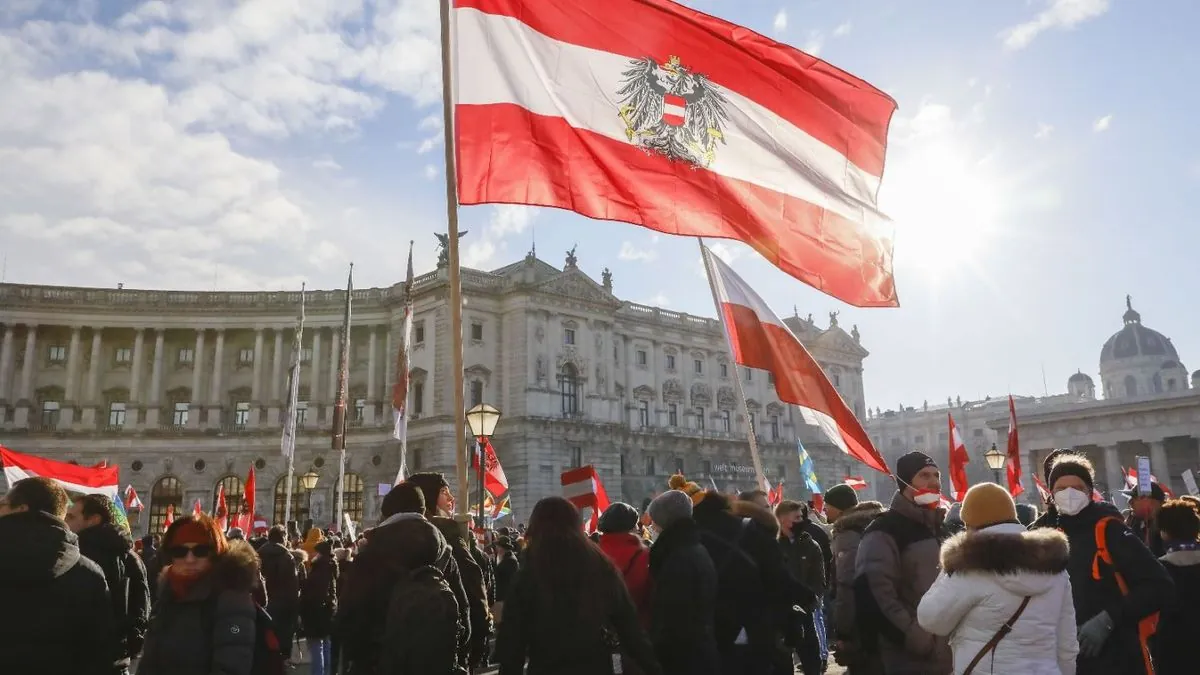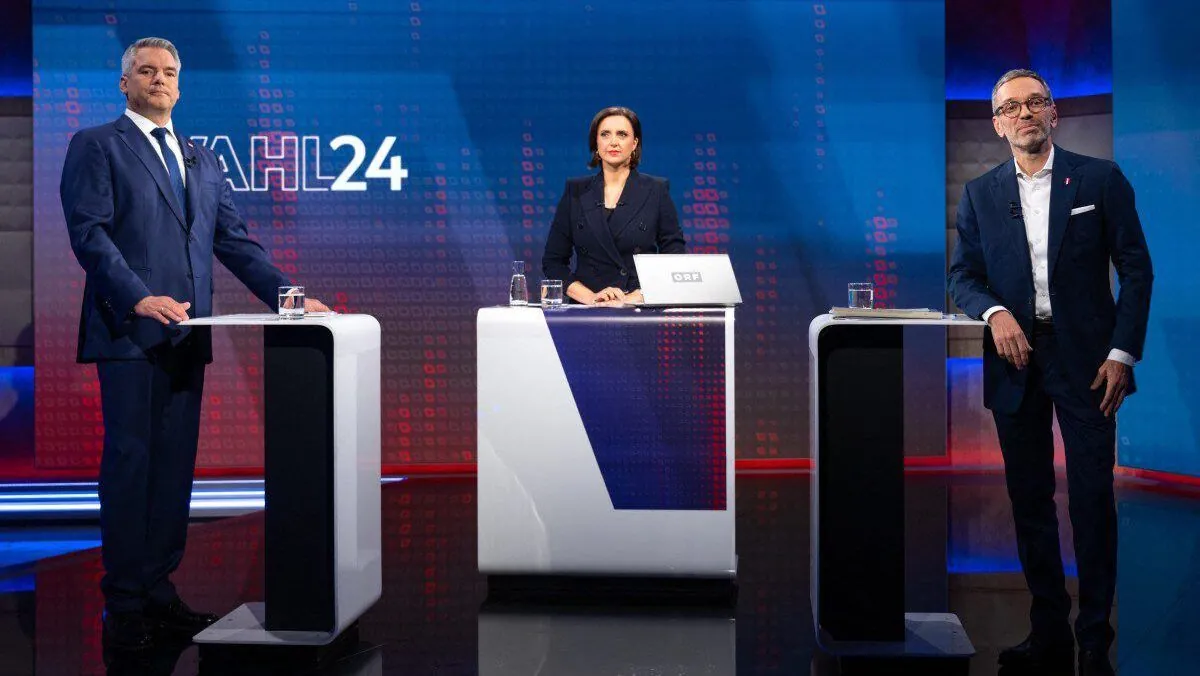Austrian Leaders Unite Against Far-Right Coalition After Election Win
Austrian political parties reject coalition with far-right Freedom Party despite its election victory. Leaders emphasize democratic values and express concerns about potential government formation.

In a significant political development, Austrian party leaders have collectively opposed forming a coalition with the far-right Freedom Party of Austria (FPÖ) following its unprecedented victory in the recent parliamentary election. The election, held on September 24, 2024, saw the FPÖ secure its highest-ever vote share, marking a pivotal moment in Austria's political landscape.
According to projections by pollster Foresight for the national broadcaster ORF, based on 82.8% of counted ballots, the FPÖ led with 28.9% of the vote. The conservative People's Party (ÖVP) followed closely with 26.3%. This outcome presents a challenging scenario for forming a stable government, as the FPÖ would require coalition partners to achieve a parliamentary majority.
The reluctance to collaborate with the FPÖ was evident during a televised discussion on ORF, where leaders of other parties expressed their reservations. Beate Meinl-Reisinger, leader of the liberal NEOS party, directly addressed FPÖ leader Herbert Kickl, stating:
"I do not want you in government and I stand by that. I simply believe it would not be good for our country."
This sentiment was echoed by leaders of other parliamentary parties. Three out of four parties have consistently ruled out any coalition with the FPÖ. The ruling ÖVP, while not entirely closing the door on cooperation, has specifically excluded the possibility of joining a government with Kickl at the helm.

Andreas Babler, leader of the Social Democrats, called for a united front against the FPÖ, emphasizing the need to protect democratic values. In response, Kickl challenged the other leaders' democratic credentials, asserting:
"You can continue your attacks in my direction but you're forgetting something. I stand here only as an ambassador and as an advocate for many, many voters in this country."
This political standoff occurs against the backdrop of Austria's complex political system. The country, with a population of about 9 million, operates under a federal parliamentary republic. Its National Council (Nationalrat), the lower house of the bicameral parliament, is elected through a proportional representation system, which often leads to coalition governments.
The FPÖ's rise to prominence is not without precedent. Founded in 1956, the party has previously participated in coalition governments. However, the Ibiza affair in 2019 led to the collapse of a previous ÖVP-FPÖ coalition, highlighting the volatile nature of such alliances.
As Austria navigates this political impasse, the country's commitment to democratic principles and its role within the European Union, which it joined in 1995, remain central to the debate. The high voter turnout, characteristic of Austrian elections, underscores the population's engagement with these critical issues.
The coming weeks will be crucial as parties negotiate and seek common ground to form a stable government. This process will test the resilience of Austria's political system and its ability to balance diverse voter interests with long-standing democratic traditions.


































